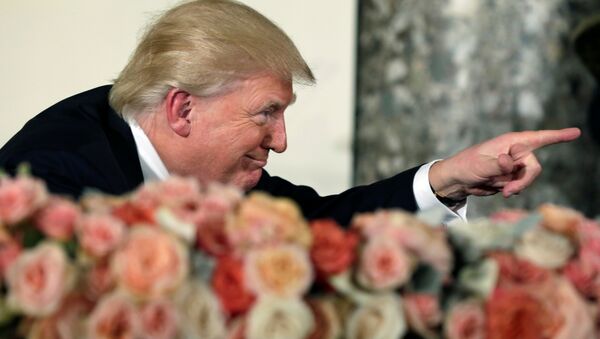He also apparently believes he created the classic phrase. At least, that’s what he said.
“We have to prime the pump … have you heard of it? Because I haven’t heard it. I mean, I just … I came up with it a couple of days ago and thought it was good,” Trump said in a recent interview with The Economist.
The internet was quick to correct him.
— Janet Fisher (@jfisherj) May 11, 2017
Trump was promptly checked by Merriam Webster, which noted that the phrase has formally been in use since at least 1933.
— Merriam-Webster (@MerriamWebster) May 11, 2017
— Merriam-Webster (@MerriamWebster) May 11, 2017
“Prime the pump” is most commonly associated with economist John Maynard Keynes, whose ideas spurred President Franklin Delano Roosevelt’s New Deal program, and called for government stimulus when the business cycle dipped into recession. During periods when economic activity is shrinking, Keynes said deficit spending would boost employment and drive output back to full potential.
But the growth rate in the US is positive at the moment – and has been for years – so that particular piece of Keynesian logic doesn’t apply.
— Joe Scarborough (@JoeNBC) May 11, 2017
Trump, a graduate of the prestigious Wharton business school, believes the US needs to engage in fiscal expansion even though growth is positive. “What you have to do is you have to put something in before you can get something out,” Trump said. Increasing the annual deficit is “OK,” Trump said, “because it won’t increase for long.”
The president claims that lower taxes will spur long-term growth. The problem? “Changes to tax rates have a very limited impact on economic growth over the longer term,” according to economist Lance Roberts. “A tax-rate reduction is quickly absorbed into the economy,” he wrote in a recent blog post.
— Tom Swanson (@Swansontea) May 11, 2017
As CNN Money noted, this isn’t even the first time Trump has used the phrase he lied about just coming up with.
He told Time magazine "Sometimes you have to prime the pump" in December, speaking of infrastructure spending and tax cuts. He also used the phrase three times when speaking earlier this year with the New York Times Magazine.


